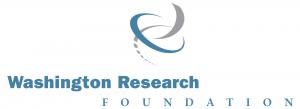Xiaohu Gao receives $250,000 phase 2 grant from Washington Research Foundation for intracellular delivery of proteins
University of Washington professor of bioengineering advances technology platform developed with assistance of previous award from WRF
We appreciate WRF’s support of this high-risk, high-impact technology. If we are successful, this could really enable scientists to visualize and modulate intracellular processes in real time.”
SEATTLE, WA, USA, June 17, 2021 /EINPresswire.com/ -- Washington Research Foundation (WRF) has awarded a $250,000 grant that will enable Xiaohu Gao, Ph.D., to develop a technology platform to tag proteins and other large molecules with cholesterol in a way that enables them to be efficiently delivered into living cells. Gao, a professor of bioengineering at the University of Washington, previously received $50,000 from WRF in 2019 for a proof-of-principle study into the technology.— Xiaohu Gao, Ph.D.
Typically, cells internalize molecules by a process known as endocytosis, which involves these molecules being engulfed by the cell through fusion with the cell membrane. The molecules then are stored in intracellular structures known as lysosomes, and subsequently degraded. Current alternative approaches that bypass endocytosis to deliver cargo into cells involve damaging the cell membrane. Gao and his colleagues recognized that there would be several advantages in a technology that avoided endocytosis and enabled cargo, including proteins, antibody fragments or nucleic acids, to enter living cells without damaging the cell or undergoing degradation. Molecules delivered efficiently and nondestructively could be used to monitor and interrogate live cell function, and also have potential therapeutic applications.
Gao’s team discovered that the restrictions caused by endocytosis can be largely overcome by tagging the cargo with cholesterol. Another key innovation by the team was to find a way for the cholesterol tag to be easily detached once the cargo was inside the cell. When tagged with cholesterol, cargo can thus not only enter the cells efficiently and remain undamaged, but also be fully functional by losing its attachment to cholesterol.
The $50,000 phase 1 technology commercialization grant from WRF in 2019 allowed Gao and his colleagues to design and test the tag to ensure it bypassed endocytosis without impairing protein function. WRF’s phase 2 grant of $250,000 will enable the team to validate that the technology can be scaled up and deliver useful cargo, a significant milestone on its path to commercialization and use in live-cell imaging.
”We appreciate WRF’s support of this high-risk, high-impact technology,” said Gao. “WRF’s grants have been critical to the development of this platform, which is an example of the type of translational research that is not traditionally funded through federal mechanisms. If we are successful, this could really enable scientists to visualize and modulate intracellular processes in real time.”
“We are delighted to support Dr. Gao in further developing this exciting platform technology,” said Meher Antia, Ph.D., director of grant programs at WRF. “The success of his initial phase 1 award demonstrated that this technology could play a major role in enabling innovative research that requires new ways of probing live cells.”
If Gao’s findings are validated through the phase 2 award, the platform could be used in multiple scientific research applications to probe the function of live cells. In the longer term, the technology may also be expanded to include drug delivery and other therapeutic applications.
About Washington Research Foundation:
Washington Research Foundation (WRF) supports research and scholarship in Washington state, with a focus on life sciences and enabling technologies.
WRF was founded in 1981 to assist universities and other nonprofit research institutions in Washington with the commercialization and licensing of their technologies. WRF is one of the foremost technology transfer and grant-making organizations in the nation, having earned more than $445 million in licensing revenue for the University of Washington and providing over $115 million in grants to the state's research institutions to date.
WRF Capital, the Foundation’s venture investment arm, has backed 112 local startups since 1994. Returns from these investments support grant-making activities at WRF.
For additional information, please visit www.wrfseattle.org.
Meher Antia, Ph.D.
Director, Grant Programs
+1 2063365600
email us here
Legal Disclaimer:
EIN Presswire provides this news content "as is" without warranty of any kind. We do not accept any responsibility or liability for the accuracy, content, images, videos, licenses, completeness, legality, or reliability of the information contained in this article. If you have any complaints or copyright issues related to this article, kindly contact the author above.

